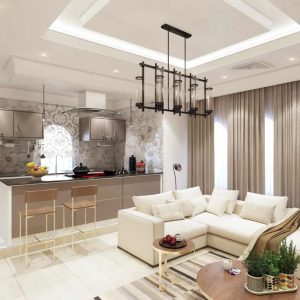
Shining a Light on Canopy Lights: The New Frontier in Energy-Efficient Outdoor Illumination
Introduction
Outdoor illumination is an essential element of our modern world. It helps us navigate a space, showcase architecture and landscaping, and provides a sense of safety and security. However, traditional outdoor lighting systems require a significant amount of energy and resources to operate, leading to environmental harm and increased costs.
What are Canopy Lights?
Canopy lights are a new type of outdoor lighting system that utilizes LED technology. They are designed to be energy-efficient, long-lasting, and customizable. These lights are typically used to brighten outdoor spaces, including parking lots, walkways, and building entrances.
Benefits of Canopy Lights
1. Energy-Efficient
Canopy lights use up to 90% less energy than traditional lighting systems. They are designed to lower energy consumption, reduce electricity bills, and decrease carbon emissions.
2. Long-Lasting
Canopy lights have an average lifespan of 50,000 hours, which is significantly longer than traditional lighting systems. This means less maintenance and replacement costs for building owners and facility managers.
3. Customizable
Canopy lights are designed to be flexible and customizable. They come in a variety of shapes, sizes, and colors that can be tailored to the specific needs of a building or outdoor space.
Applications of Canopy Lights
Canopy lights are versatile and can be used in a range of outdoor settings. Some of the most common applications include:
- Parking lots
- Gas stations
- Building entrances
- Walkways
- Stairwells
Canopy lights can also be used to highlight specific features of a building or outdoor space, such as landscaping or signage.
Challenges of Canopy Lights
While canopy lights offer many benefits, there are some challenges that need to be considered:
- Initial cost: Canopy lights can be more expensive than traditional lighting systems, which can be a barrier for some building owners or facility managers.
- Installation: Canopy lights require professional installation, which can add to the initial cost of the system.
- Light pollution: Improperly placed or installed lights can contribute to light pollution, which can have negative effects on wildlife and human health.


